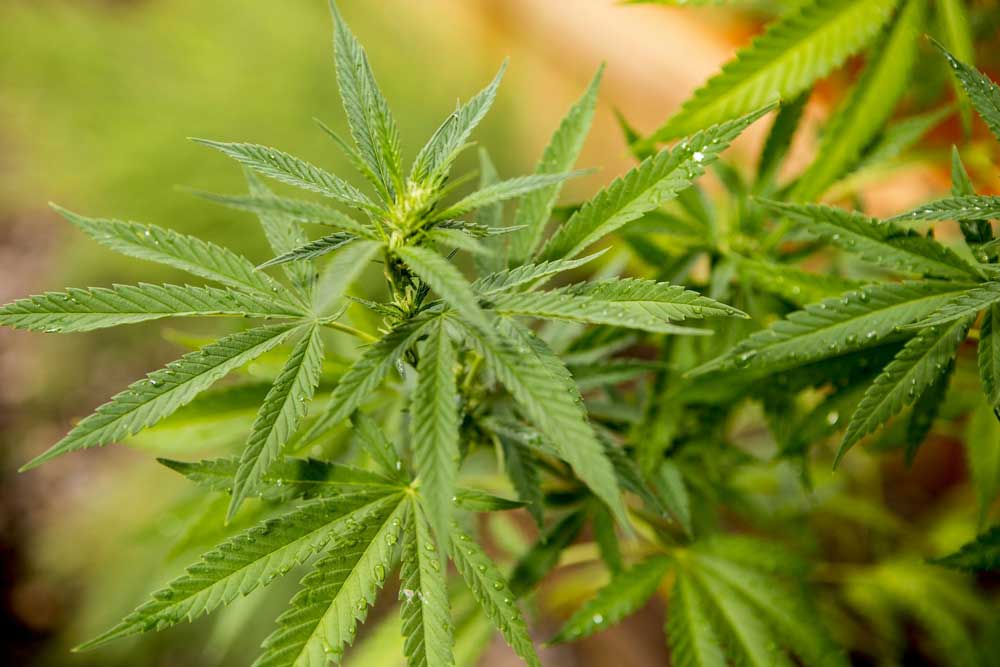
By Kevin F. Boehnke
The U.S. Drug Enforcement Agency announced in late April 2024 that it plans to ease federal restrictions on cannabis, reclassifying it from a Schedule I drug to the less restricted Schedule III, which includes drugs such as Tylenol with codeine, testosterone and other anabolic steroids. This historic shift signals an acknowledgment of the promising medicinal value of cannabis.
The move comes in tandem with growing interest in the use of psilocybin, the active component in magic mushrooms, for treatment of depression, chronic pain and other conditions. In 2018 and 2019, the U.S. Food and Drug Administration granted a breakthrough therapy designation to psilocybin, meant to expedite drug development given that preliminary studies suggest it may have substantial therapeutic value over currently available therapies for treatment-resistant depression and major depressive disorder.
Both of these developments represent a dramatic change from long-standing federal policy around these substances that has historically criminalized their use and blocked or delayed research efforts into their therapeutic potential.
As an assistant professor of anesthesiology and a pain researcher, I study alternative pain management options, including cannabis and psychedelics.
I also have a personal stake in improving chronic pain treatment: In early 2009 I was diagnosed with fibromyalgia, a condition characterized by widespread pain throughout the body, sleep disturbances and generalized sensory sensitivity.
I see cannabis and psilocybin as promising therapies that can contribute to bridging that need. Given that an estimated 50 million Americans have chronic pain – meaning pain that persists for three months or more – I want to help understand how to effectively use cannabis and psilocybin as potential tools for pain management.
Cannabis versus other pain medications
Cannabis, also known as marijuana, is an ancient medicinal plant. Cannabis-based medicines have been used for at least 5,000 years for applications such as arthritis and pain control during and after surgery.
This use extended through antiquity to modern times, with contemporary cannabis-based medications for treating certain seizure disorders, promoting weight gain for HIV/AIDS-related anorexia and treating nausea during chemotherapy.
As with anything you put in your body, cannabis does have health risks: Driving while high may increase risk of accidents. Some people develop cyclical vomiting, while others develop motivation or dependence problems, especially with heavy use at younger ages.
That said, lethal overdoses from cannabis are almost unheard of. This is remarkable considering that nearly 50 million Americans use it each year.
In contrast, opioids, which are often prescribed for chronic pain, have contributed to hundreds of thousands of overdose deaths over the past few decades. Even common pain medications like nonsteroidal anti-inflammatory drugs, such as ibuprofen, cause tens of thousands of hospitalizations and thousands of deaths each year from gastrointestinal damage.
Furthermore, both opioids and nonopioid pain medications have limited effectiveness for treating chronic pain. Medications used for chronic pain can provide small to moderate pain relief in some people, but many ultimately cause side effects that outweigh any gains.
These safety issues and limited benefit have led many people with chronic pain to try cannabis as a chronic pain treatment alternative. Indeed, in survey studies, my colleagues and I show that people substituted cannabis for pain medications often because cannabis had fewer negative side effects.
However, more rigorous research on cannabis for chronic pain is needed. So far, clinical trials – considered the gold standard – have been short in length and focused on small numbers of people. What’s more, my colleagues and I have shown that these studies employ medications and dosing regimes that are far different from how consumers actually use products from state-licensed cannabis dispensaries. Cannabis also causes recognizable effects such as euphoria, altered perceptions and thinking differently, so it is difficult to conduct double-blind studies.
Despite these challenges, a group of cannabis and pain specialists published a proposed guideline for clinical practice in early 2024 to synthesize existing evidence and help guide clinical practice. This guideline recommended that cannabis products be used when pain is coupled with sleep problems, muscle spasticity and anxiety. These multiple benefits mean that cannabis could potentially help people avoid taking a separate medication for each symptom.
Traditional hurdles to studying cannabis
Since the Controlled Substance Act was passed in 1970, the federal government has designated cannabis as a Schedule I substance, along with other drugs such as heroin and LSD. Possession of these drugs is criminalized, and under the federal definition they have “no currently accepted medical use, with a high potential for abuse.” Because of this designation and the limits placed on drug manufacturing, cannabis is very difficult to study.
State and federal regulatory barriers also delay or prevent studies from being approved and conducted. For example, I can purchase cannabis from state-licensed dispensaries in my hometown of Ann Arbor, Michigan. As a scientist, however, it is very challenging to legally test whether these products help pain.
Reclassifying cannabis as a Schedule III drug has the potential to substantially open up this research landscape and help overcome these barriers.

Raphael Rangel / 500px via Getty Images
The emerging role of psychedelics
Psychedelics, such as psilocybin-containing mushrooms, occupy an eerily similar scientific and political landscape as cannabis. Used for thousands of years for ceremonial and healing purposes, psilocybin is also classified as a Schedule I drug. It can cause substantial changes in sensory perception, mood and sense of self that can lead to therapeutic benefits. And, like cannabis, psilocybin has minimal risk of lethal overdose.
Clinical trials combining psilocybin with psychotherapy in the weeks before and after taking the drug report substantial improvements in symptoms of psychiatric conditions such as treatment-resistant depression and alcohol use disorder.
Risks are typically psychological. A small number of people report suicidal thoughts or self-harm behaviors after taking psilocybin. Some also experience heightened openness and vulnerability, which can be exploited by therapists and lead to abuse.
There are few published clinical trials of psilocybin therapy for chronic pain, although many are ongoing, including a pilot study for fibromyalgia conducted by our team at the University of Michigan. This treatment may help people develop a healthier relationship with their pain by eliciting greater acceptance of it and decreasing rumination often related to negative thoughts and feelings around pain.
As with cannabis, some states, such as Colorado and Oregon, have decriminalized psilocybin and are building infrastructure to increase accessibility to psilocybin-assisted therapy. One recent analysis suggests that if psychedelics follow a similar legalization pattern to cannabis, the majority of states will legalize psychedelics between 2034 and 2037.
Challenges ahead
These ancient yet relatively “new” treatments offer a unique glimpse into the messy intersection of drugs, medicine and society. The justifiable excitement about cannabis and psilocybin has led to state policies that have increased access for some people, yet federal criminalization and substantial barriers to scientific investigation remain. In the years ahead, I hope to contribute toward pragmatic studies that work within these difficult parameters.
For example, our team developed a coaching intervention to help veterans use commercially available cannabis products to more effectively treat their pain. Coaches emphasize how judicious use can minimize side effects while maximizing benefits. Should our approach work, health care providers and cannabis dispensaries everywhere could use this treatment to help clients in chronic pain.
Approaches like these can supplement more traditional clinical trials to help researchers determine whether these drug classes offer benefit and whether they have comparable or less harm than current treatments. As our society connects to the rich history of healing using these ancient drugs, these proposed changes may offer safer and substantive options for the 50 million Americans living with chronic pain.
![]()
Kevin F. Boehnke is Assistant Professor of Anesthesiology at the University of Michigan.





























Pogo says
@Kevin F. Boehnke (and FlaglerLive)
Thank you.
Related
As stated
https://www.google.com/search?q=Carlos+Castaneda
James says
Psilocybin? Shouldn’t the goal be universal health care coverage first, then the administration of mind-altering psychedelics?
Just say’n.
Laurel says
Plants are classified as “dangerous” for political and financial purposes. Not for safety reasons. Go to your local garden centers and look at the beautiful, flowering cyclomins, that are deadly poisonous to children and pets, with no caution labels whatsoever.
It’s all baloney.
Linda says
My daughter in law is currently dealing with cervical cancer. Her oncologist suggested medical marijuana to help with the repercussions from chemo and radiation. RSO is helping immensely as well. Prognosis? Excellent. ♥️